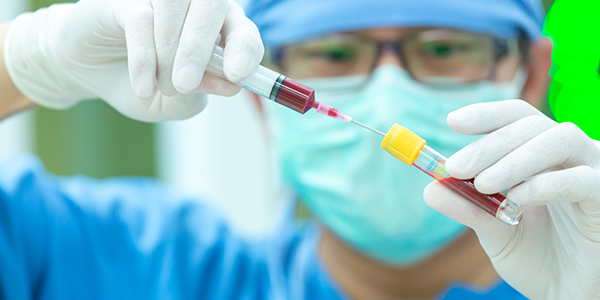Unveiling Ambulatory Acid Probe Testing: Advancing Acid Reflux Diagnosis and Treatment
Ambulatory acid probe testing, also known as pH monitoring or pH-impedance testing, is a valuable diagnostic procedure used to assess acid reflux and its impact on the esophagus. This advanced clinic-based testing offers valuable insights into the frequency, duration, and nature of acid exposure in the esophagus, aiding in accurate diagnosis and personalized treatment plans for individuals experiencing acid reflux symptoms.

Understanding Ambulatory Acid Probe Testing:
Ambulatory acid probe testing involves the placement of a small, flexible tube equipped with sensors into the esophagus to measure the pH (acidity) levels. This tube, called a pH probe, is typically inserted through the nose or mouth and secured in the esophagus. The probe remains in place for a specified period, often 24 to 48 hours, while the individual continues with their regular activities. Throughout the monitoring period, the sensors measure the pH levels in the esophagus, providing valuable data about acid reflux episodes.
Indications for Ambulatory Acid Probe Testing:
Ambulatory acid probe testing is recommended for individuals who experience acid reflux symptoms that may not be fully explained by standard diagnostic methods. Indications for the procedure include:
Unresolved Symptoms: Individuals with persistent symptoms such as heartburn, regurgitation, chest pain, or chronic cough, despite lifestyle modifications and initial treatments, may benefit from pH monitoring.
Atypical Symptoms: For individuals experiencing symptoms that are not typical of acid reflux, such as throat clearing, chronic hoarseness, or difficulty swallowing, ambulatory acid probe testing can help identify underlying causes.
Assessing Treatment Efficacy: Ambulatory acid probe testing is useful in evaluating the effectiveness of acid-suppressing medications or other treatments by measuring the reduction in acid exposure.
Benefits of Ambulatory Acid Probe Testing:
Accurate Diagnosis: Ambulatory acid probe testing provides objective data on the frequency and duration of acid reflux episodes, aiding in accurate diagnosis and differentiation from other conditions with similar symptoms.
Customized Treatment: The insights gained from pH monitoring allow healthcare providers to tailor treatment plans to the individual's specific acid reflux pattern, ensuring more effective symptom management.
Identifying Reflux Patterns: pH-impedance testing not only measures acid levels but also detects non-acidic reflux events and evaluates their contribution to symptoms.
Guiding Surgical Decisions: In cases where surgical intervention is considered, ambulatory acid probe testing can help determine whether acid reflux is a significant factor and guide treatment decisions.
Objective Monitoring:
Unlike patient-reported symptom diaries, ambulatory acid probe testing offers objective data that can help corroborate or challenge patients' perceptions of their symptoms.
Frequently Asked Questions (FAQs)
How is ambulatory acid probe testing performed?
A small, flexible tube with sensors, called a pH probe, is inserted through the nose or mouth and secured in the esophagus. The probe remains in place for around 24 to 48 hours while pH levels are monitored.
Who should consider ambulatory acid probe testing?
Individuals with persistent acid reflux symptoms, atypical symptoms, or those requiring assessment of treatment effectiveness may benefit from ambulatory acid probe testing.
What are the benefits of ambulatory acid probe testing?
Ambulatory acid probe testing provides accurate diagnosis, customized treatment plans, identification of reflux patterns, guidance for surgical decisions, and objective monitoring of acid reflux.
Is ambulatory acid probe testing uncomfortable?
The procedure may cause some mild discomfort during placement, but it is generally well-tolerated. Most individuals can continue their daily activities while wearing the pH probe.
In conclusion, ambulatory acid probe testing is a valuable diagnostic tool that offers precise insights into acid reflux patterns and helps guide personalized treatment plans. By providing accurate data on acid exposure and reflux events, this procedure empowers healthcare providers to make informed decisions and offer effective solutions for individuals experiencing acid reflux symptoms.
